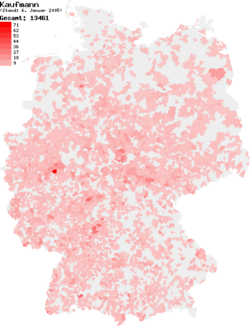Look up Kaufmann in Wiktionary, the free dictionary.

Kaufmann is a surname with many variants such as Kauffmann, Kaufman, and Kauffman. In German, the name means merchant . It is the cognate of the English Chapman (which had a similar meaning in the Middle Ages, though it disappeared from modern English). Kaufmann may refer to: